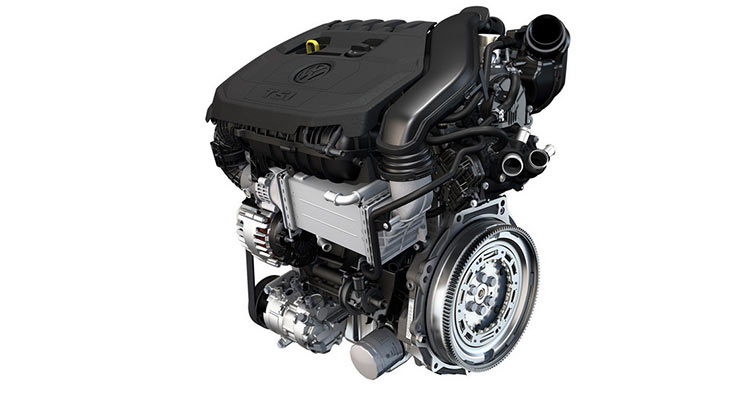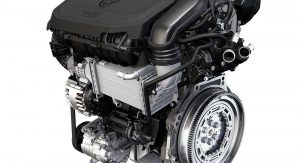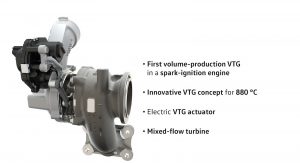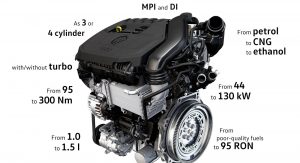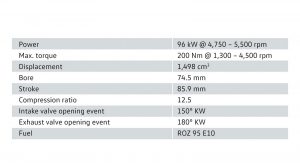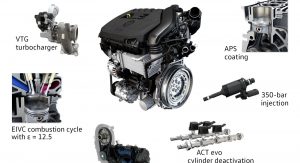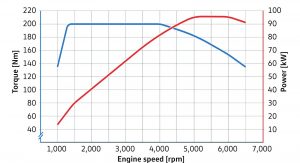The German company has revealed most of the details about its new generation of 1,5-litre TSI petrol engines.
The so-called EA211 TSI evo engine will be initially available in two power outputs, 130PS (128hp) and 150PS (148hp). Among its many highlights is the introduction of a turbocharger with variable turbine geometry, a feature only seen in petrol engines of much more expensive machinery, like Porsche’s latest 718 series and the 911 Turbo.
The new 1.5TSI unit offers up to 10 per cent better fuel economy when compared to the old 125PS 1.4TSI unit, with the improvement taking effect across a wide range of the engine’s map, meaning that customers will be able to see the difference on everyday driving and not just under test bench conditions.
Another highlight of the new turbocharged four-cylinder unit is that it makes its maximum torque available really early, offering 200Nm from just 1.300rpm in the 128hp version. Torque details on the 148hp version have not yet been announced.
The compression ratio is now a rather impressively high 12.5:1, with the engine working under the Miller combustion cycle. The cylinder liners in the aluminium crankcase for the 148hp version are coated using a procedure called the atmospheric plasma spray (APS) which reduces friction on the piston rings and increases the heat dissipation when compared to cast-iron crankcases.
The cylinder head is also extensively re-engineered, adapting the valve angle and combustion chamber for the best possible execution of the Miller cycle. The exhaust manifold is still integrated into the cylinder head while the cylinder deactivation feature has been further improved and will be available with all versions.
This is also the first time Volkswagen is using their fourth-generation direct-injection system, with the system’s injection pressure set to 350 bar. The higher pressure leads to a substantial reduction of the particulate emissions.
The new EA211 evo engine is expected to debut under the bonnets of the VW Golf, Skoda Octavia, Seat Leon and Audi A3 replacing the existing lineup of 1.4-litre TSI engines in the near future.




